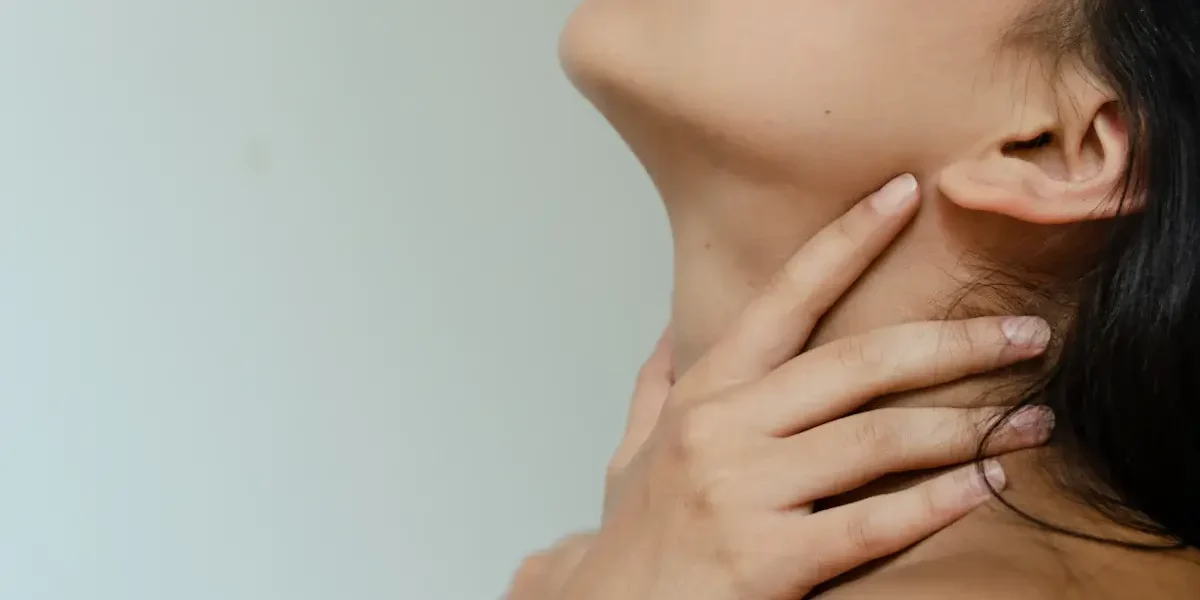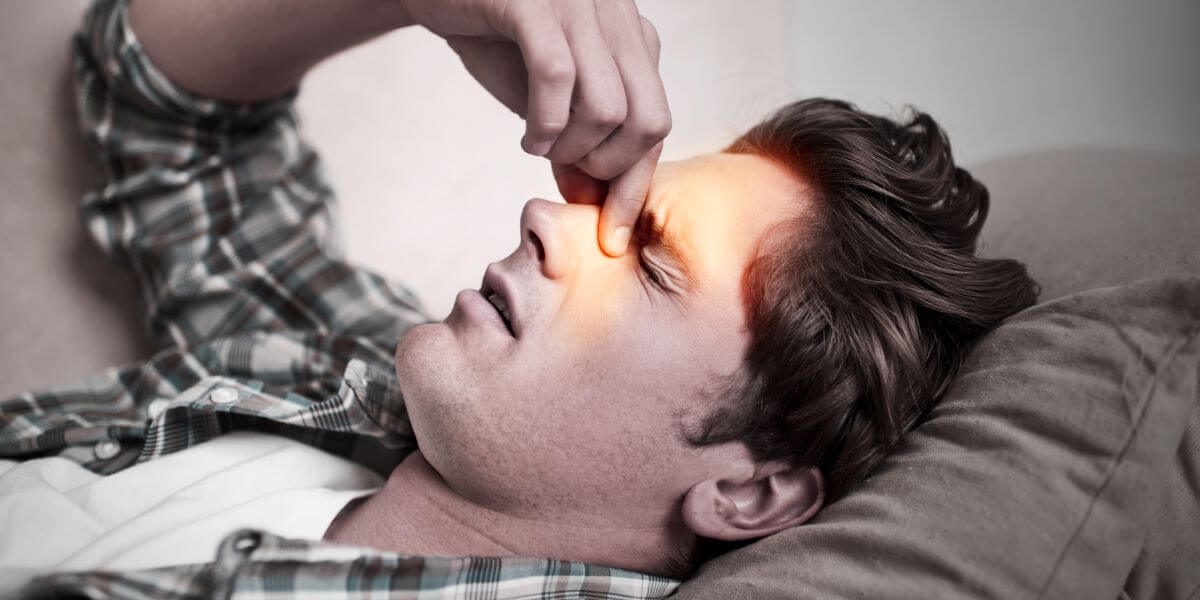
If you’ve been waking up feeling exhausted despite a full night’s sleep or have been told you snore loudly, you may be dealing with more than just restless nights. Sleep apnea is a common yet serious condition that can significantly impact your quality of life and overall health. Here at Pikes Peak ENT, Allergy & Asthma, we understand how frustrating and even frightening it can be to struggle with poor sleep. We’re here to guide you through understanding this condition and finding effective treatment options so that you can enjoy better rest and overall well-being.
At Pikes Peak ENT, we embody values of compassionate care, patient education, and expert treatment. We aim to provide you with the knowledge and support you need to feel empowered about your health decisions.
What is Sleep Apnea?
Sleep apnea is a sleep disorder where your breathing repeatedly stops and starts throughout the night. These interruptions, known as apneas, occur when the muscles in your throat relax too much during sleep, blocking your airway. The lack of oxygen alerts your brain, which momentarily wakes you to reopen your airway. This pattern, often unnoticed by the person affected, disrupts your sleep cycles and leaves you feeling tired during the day.
There are three types of sleep apnea:
- Obstructive Sleep Apnea (OSA): The most common type, OSA occurs when the throat muscles relax and block the airway.
- Central Sleep Apnea: This type happens when the brain fails to send proper signals to the muscles responsible for breathing.
- Complex Sleep Apnea Syndrome: A combination of both obstructive and central sleep apnea, also known as treatment-emergent central sleep apnea.
Understanding the type of sleep apnea you have is critical to determining the right treatment approach.
Common Symptoms of Sleep Apnea
Sleep apnea can manifest in a variety of symptoms that impact your ability to get restful sleep and can lead to more serious health issues. Below are some of the most common signs to look out for:
- Excessive daytime sleepiness: One of the hallmark signs of sleep apnea, this can leave you feeling tired even after a full night’s rest, affecting your productivity and focus.
- Loud snoring: This is often the first symptom noticed by a bed partner and is particularly prevalent with obstructive sleep apnea.
- Morning headaches: Repeated oxygen deprivation can lead to morning headaches that make waking up difficult.
- Waking up gasping for air: If you experience moments of breathlessness during sleep, this could be due to apnea episodes.
- Difficulty concentrating: Lack of quality sleep can affect your cognitive functions, making it harder to focus during the day.
- Irritability or mood changes: Poor sleep can contribute to mood swings, irritability, and even depression.
Additional symptoms may include:
- Dry mouth or sore throat: Central sleep apnea, in particular, can cause you to wake up with these symptoms.
- Night sweats: Frequent awakenings can cause discomfort and excessive sweating at night.
- Restlessness during sleep: You may experience insomnia or frequent awakenings, leading to disrupted sleep patterns.
Common Causes of Sleep Apnea
Understanding the causes of sleep apnea can help you and your doctor create an effective treatment plan. While anyone can develop sleep apnea, certain factors can increase your risk:
- Excess weight: Fat deposits around the upper airway can obstruct breathing.
- Narrow airway: You might have inherited a naturally narrow airway or have enlarged tonsils or adenoids that block airflow.
- Being male: Men are more likely than women to develop sleep apnea, though it can affect anyone.
- Age: The risk of sleep apnea increases as you get older.
- Family history: Genetics can play a role in whether you develop sleep apnea.
- Lifestyle factors: Smoking, alcohol use, and sedative use can relax the throat muscles, contributing to airway blockages.
Treatment Options for Sleep Apnea
If you’ve been diagnosed with sleep apnea, the good news is that there are several effective treatment options available to help manage your symptoms. The best treatment for you will depend on the severity of your condition and your overall health.
Natural/At-Home Remedies
While medical treatment is often necessary, there are several lifestyle adjustments and home remedies that may help reduce your sleep apnea symptoms:
- Adjust your sleeping position: Sleeping on your back can worsen sleep apnea. Try sleeping on your side to help keep your airway open during the night.
- Weight management: Losing even a small amount of weight can reduce fatty deposits around your upper airway and improve breathing.
- Use nasal strips or a nasal dilator: For those with nasal congestion, using strips or dilators can help improve airflow.
- Practice good sleep hygiene: Establish a regular sleep schedule, create a relaxing bedtime routine, and keep your sleep environment comfortable and quiet.
Prescription Options
For moderate to severe cases of sleep apnea, medical devices and treatments may be necessary:
- Continuous Positive Airway Pressure (CPAP): A CPAP machine delivers a continuous stream of air through a mask worn during sleep, keeping your airway open. It is the most common and effective treatment for sleep apnea.
- Oral appliances: Custom-fitted oral devices can help keep your airway open by repositioning your jaw during sleep. This is often a good option for mild to moderate cases.
Surgical Options
If other treatments fail, or if structural issues contribute to your sleep apnea, surgery may be recommended:
- Uvulopalatopharyngoplasty (UPPP): This surgery removes excess tissue from the back of the throat to reduce blockages.
- Tonsillectomy: Enlarged tonsils can be removed to improve airflow, especially in children.
- Nasal surgery: For those with a deviated septum or other nasal issues, corrective surgery can help improve breathing.
- Inspire Upper Airway Stimulation (UAS) Therapy: This implantable device stimulates your airway muscles to keep your airway open during sleep, making it a good alternative for those who can’t tolerate CPAP therapy.
When to See a Doctor
If you’re experiencing any of the following symptoms, it’s important to seek medical advice as untreated sleep apnea can lead to serious complications such as heart disease, stroke, or diabetes:
- You experience excessive daytime sleepiness, even after a full night’s sleep.
- Your snoring is loud enough to disturb others or you wake up gasping for air.
- You have difficulty concentrating, remembering things, or staying awake during daily activities.
- You wake up with morning headaches or a sore throat.
At Pikes Peak ENT, Allergy & Asthma, we specialize in diagnosing and treating sleep apnea. If you recognize any of these symptoms, don’t hesitate to reach out for an evaluation. Getting the right treatment can improve your quality of life and help you get the restful sleep you deserve.
Take Control of Your Health with Personalized Care
Book an appointment today and let us help you breathe easier, hear better, and live more comfortably with our expert ENT, allergy and asthma care
Ready to take control of your sleep health? Reach out to our specialists at Pikes Peak ENT, Allergy & Asthma today, and let us help you get back to restful nights and productive days.
Sources
- American Sleep Apnea Association – https://www.sleepapnea.org
- Mayo Clinic – https://www.mayoclinic.org
- National Heart, Lung, and Blood Institute – https://www.nhlbi.nih.gov
- Sleep Foundation – https://www.sleepfoundation.org
- Cleveland Clinic – https://my.clevelandclinic.org
- Harvard Health – https://www.health.harvard.edu
- WebMD – https://www.webmd.com
- Johns Hopkins Medicine – https://www.hopkinsmedicine.org

